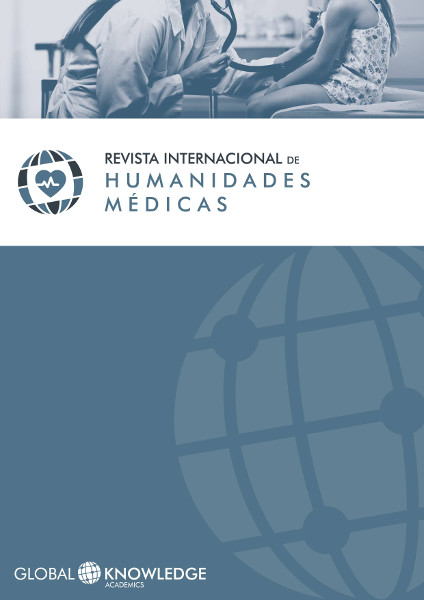Training for integrality in Health Care Careers: Potential for an Interprofessional Project
DOI:
https://doi.org/10.37467/gka-revmedica.v3.1169Keywords:
Health Education, Interprofessional Education, Teamwork, Integrality in CareAbstract
This study highlights the importance of interprofessional education in health for the learning process of the teamwork and integrality in care to expand effectiveness of services and quality of care. Former students from undergraduate health courses in Federal University of São Paulo/UNIFESP, Brazil (physical education, physical therapy, nursing and occupational therapy) responded to the questionnaire RIPLS to assess attitudes and readiness to three factors: teamwork and collaboration, professional identity and patient-centered care. The results showed this essential for health professionals development of competencies: problem solving, decision making, leadership, trust and respect to each other, communication with patients and other professionals, understanding the nature of the problems, understanding the clinical cases from the patient´s point of view. Eighty -four percent of the former students of the undergraduate courses were satisfied with the training received and provided contributions to the analysis of health education in the perspective of interprofessional education.
Global Statistics ℹ️
|
99
Views
|
31
Downloads
|
|
130
Total
|
|
References
Aguilar-da-Silva, R. H.; Scapin, L. T.; Batista, N. A. (2011): “Avaliação da formação interprofissional no ensino superior em saúde: aspectos da colaboração e do trabalho em equipe”, Avaliação: Revista da Avaliação da Educação Superior , v. 16: 165-182.
Alarcão, I. (1996): Formação Reflexiva de Professores – Estratégias de Supervisão, Porto, Porto Editora.
Barr, H. (1988): “Competent to collaborate; towards a competency-based model for Interprofessional education” Journal of Interprofessional Care , London, UK, v. 12: 181-188.
Batista, N. A. (2012): “Educação Interprofissional em Saúde: concepções e práticas”, Caderno FNEPAS, v. 2: 25-28.
Batista, N. A. (2010): Projeto Pró-Ensino na Saúde: Formação Profissional para a integralidade no cuidado: articulando formação, avaliação e integração com o SUS , São Paulo, UNIFESP (não publicado).
Brasil, Ministério da Educação, Sistema Nacional de Avaliação da Educação Superior - SINAES (2007): PORTARIA NORMATIVA Nº 40, DE 12 DE DEZEMBRO DE 2007 , Brasília, MEC.
Colares, M. F. A. et al. (2002): “Construção de um Instrumento para Avaliação das Atitudes de Estudantes de Medicina frente a Aspectos Relevantes da Prática Médica”, Revista Brasileira de Educação Médica , v. 26: 194-203.
Freire, Paulo (2002): Pedagogia da autonomia: saberes necessários à prática educativa , 25 ed., São Paulo, Paz e Terra.
Hind, M. et al. (2003): “Interprofessional perceptions of health care students”, Journal of Interprofessional Care, London, UK, v. 17: 21-34.
McNair, R.; Stone, N.; Sims, J.; Curtis, C. (2005): “Australian evidence for interprofessional education contributing to effective teamwork preparation and interest in rural practice”, Journal of Interprofessional Care , London, UK, v. 19: 579-94.
Micheletto, I. B. P.; Levandovski, A.R. (2013): Ação-reflexão-ação: processo de formação continuada. Acesso maio 20, 2013, http://www.diaadiaeducacao.pr.gov.br/portals/pde/arquivos/1448-6.pdf.
Parsell, G.; Bligh, J. (1999): “The development of a questionnaire to assess the readiness of health care students for interprofessional learning (RIPLS)”, Medical Education, v. 3: 95–100.
Pasquali, L. (1996): Teoria e métodos de medida em ciências do comportamento. Brasília (DF): Laboratório de Pesquisa em Avaliação e Medida, Instituto de Psicologia, Universidade de Brasília, Instituto Nacional de Estudos e Pesquisas Educacionais, 432p.
Peduzzi, M.; Norman, I. J. (2012): “Validação de instrumento de medida do aprendizado interprofissional para trabalho em equipe”, Anais do III Encontro Internacional de Pesquisa em Enfermagem . Acesso junho 30, 2013, http://www.ee.usp.br/evento/2012/encontro/anais/resumos/R0168-1.html
Rossit, R. A. S. (2013): “Análise de um Projeto de Educação Interprofissional na Formação em Saúde: ótica dos egressos”, Relatório Científico de Pós-Doutoramento, Universidade Federal de São Paulo (não publicado).
Schön, D. (2000): Educando o profissional reflexivo: um novo design para o ensino e a aprendizagem, Porto Alegre, Artes Médicas.
UNIFESP, Universidade Federal de São Paulo. (2006): Projeto Político Pedagógico do campus Baixada Santista. Acesso maio 10, 2013, http://www.baixadasantista.unifesp.br/projpedag.php.
WHO. World Health Organization. (2010): Framework for Action on Interprofessional Education and Collaborative Practice, Geneva, World Health Organization.
Downloads
Published
How to Cite
Issue
Section
License
Those authors who publish in this journal accept the following terms:
- Authors will keep the moral right of the work and they will transfer the commercial rights.
- After 1 year from publication, the work shall thereafter be open access online on our website, but will retain copyright.
- In the event that the authors wish to assign an Creative Commons (CC) license, they may request it by writing to administracion@edulab.es









